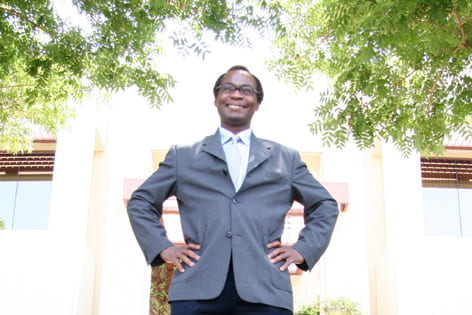Public health: The big picture
The field of public health looks at the big picture, and that image is coming into focus at UC Irvine as its Program in Public Health marks its greatest growth stage in its young, five-year history.

The field of public health looks at the big picture, and that image is coming into focus at UC Irvine as its Program in Public Health marks its greatest growth stage in its young, five-year history.
This fall, the program begins recruiting students for an innovative master’s in public health, which will be part of the new Department of Population Health & Disease Prevention and prepare students to solve large-scale health challenges impacting culturally diverse communities.
“Our program is the culmination of a long-term vision,” says department chair Dele Ogunseitan, an international expert on environmental health sciences. “We have a strong research faculty with a tradition of working across boundaries, which will allow our students to receive the in-depth, interdisciplinary training necessary to impact public health in California and the world.”
The new department and master’s program come at a time when doctors and public officials are increasingly looking at chronic health issues from a combination of environmental, behavioral, socioeconomic and medical perspectives.
“Medical research does well to look at a single disease in a single person, but we also need to better understand how to prevent this disease from becoming a recurring event in a population,” Ogunseitan says. “Most illnesses, such as infectious diseases that affect millions worldwide, need to be addressed in a forum that takes different approaches into consideration.”
To prepare students to address these real-world health problems, the master’s program will focus on environmental health, epidemiology, and sociocultural diversity and health.
Public health education traditionally focuses on environmental health, and UCI has well-established research efforts in infectious diseases (such as malaria), natural disasters and industrial pollutants. The epidemiology core will build upon existing strengths in cancer genetics and environmental pollutants. And, the area of social and cultural diversity and health will have strong ties with the School of Medicine’s innovative Program in Medical Education for the Latino Community.
The program currently offers a bachelor’s in public health policy and in public health sciences. The first cohort of 20 master’s students will begin classes next year. Program graduates ultimately will be prepared for leadership roles with county and state public health agencies, the Centers for Disease Control and Prevention, the World Health Organization and nonprofit agencies such as the Bill & Melinda Gates Foundation, Ogunseitan says.
A doctoral program is under development.